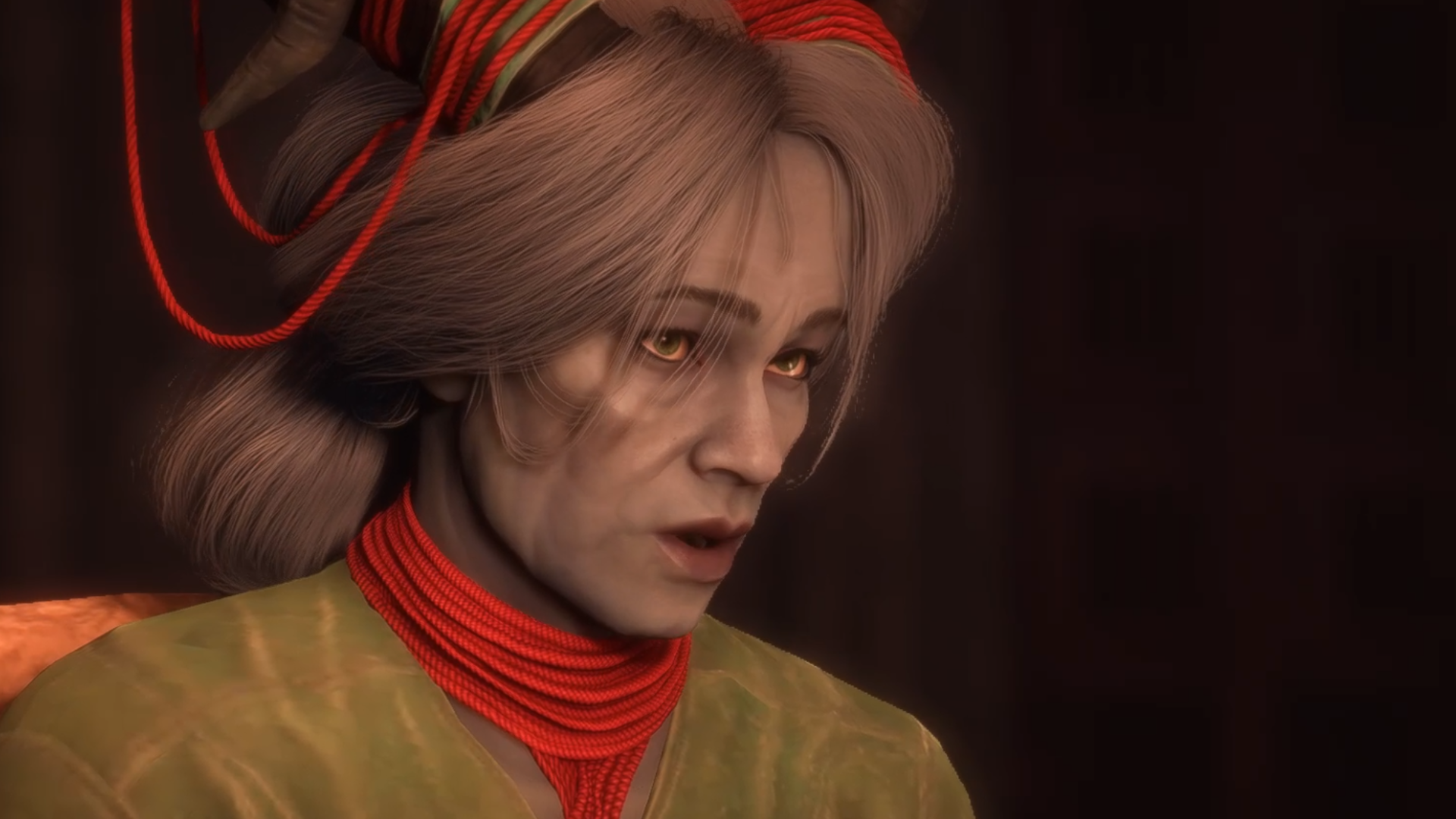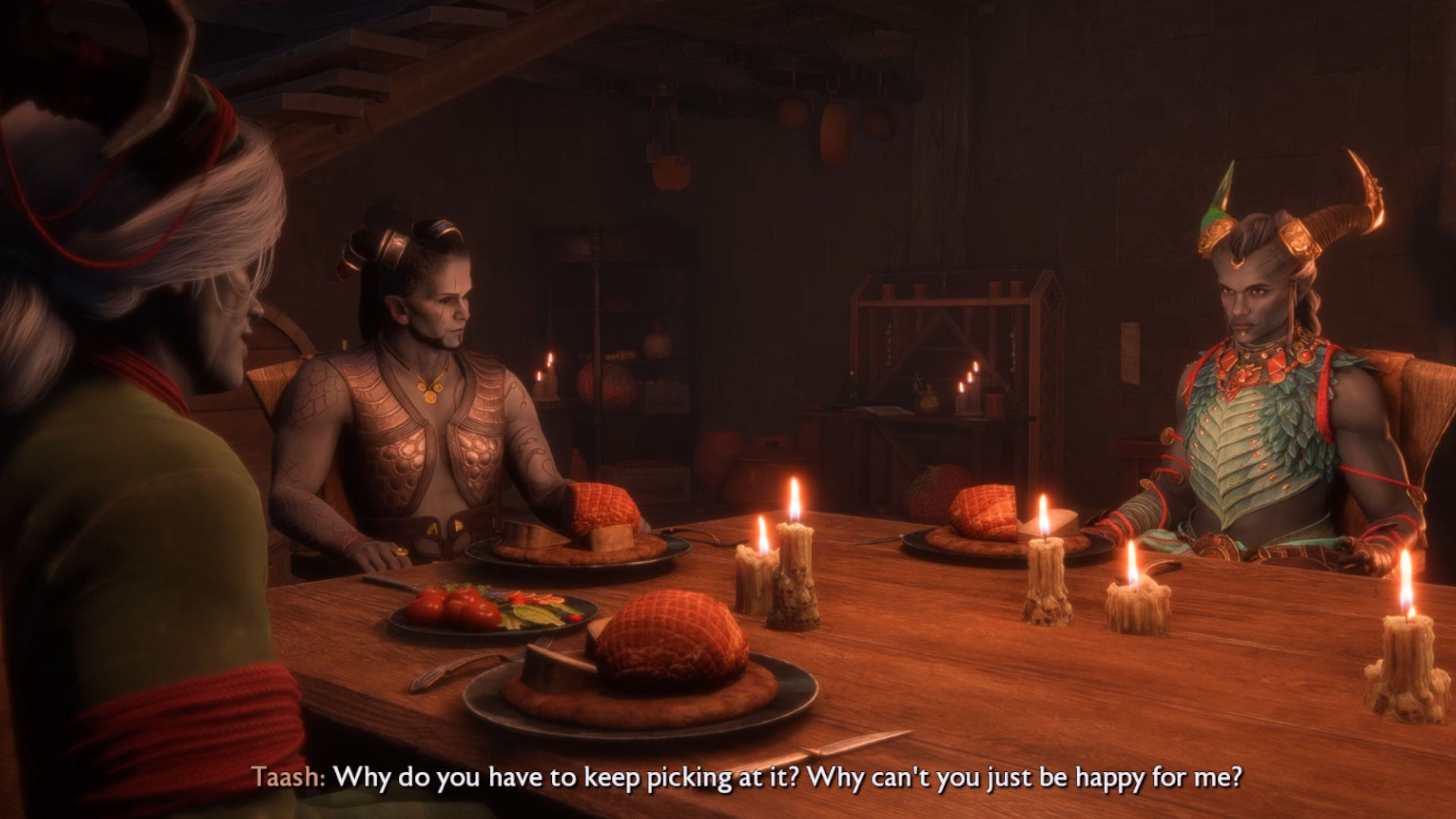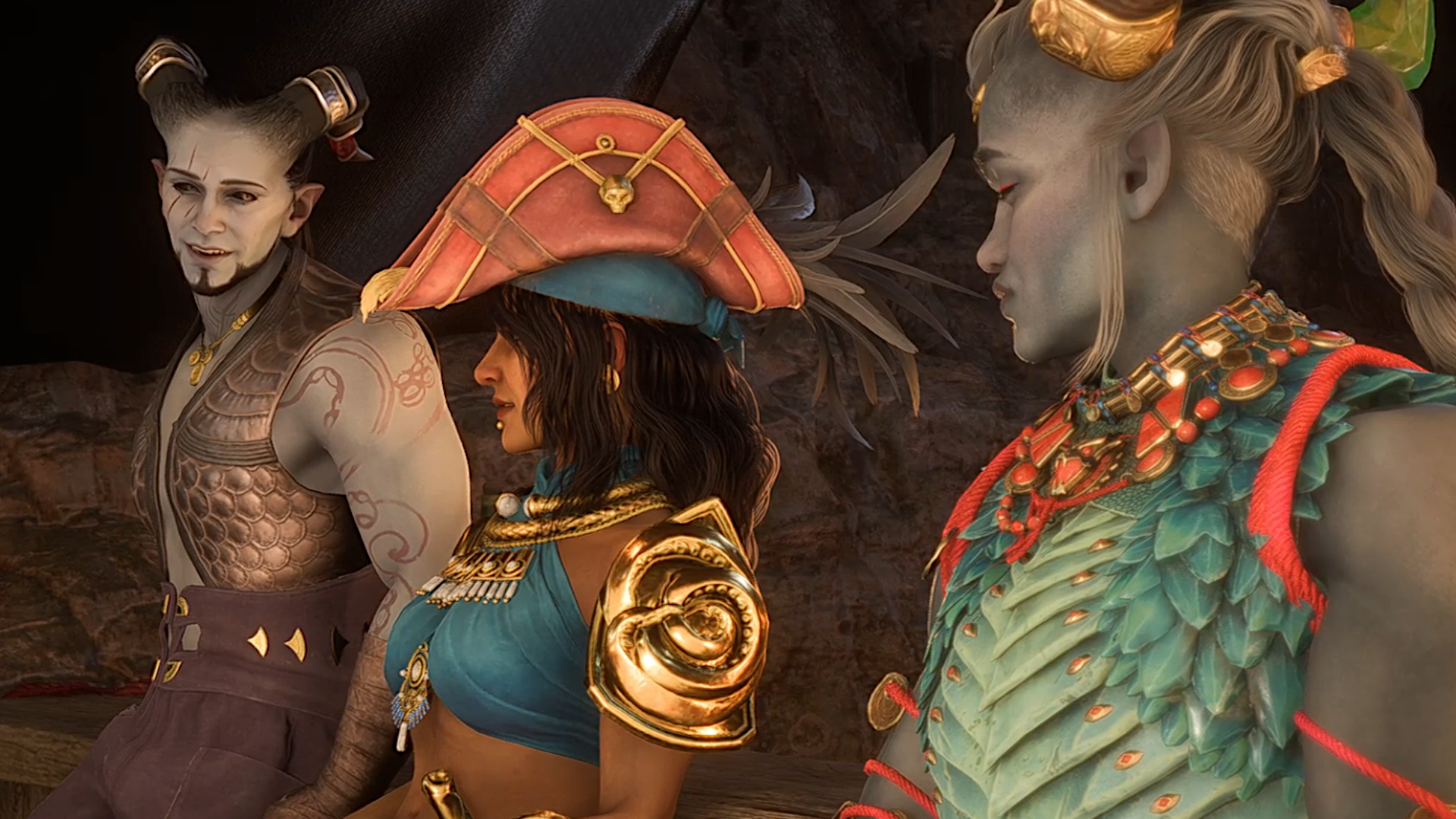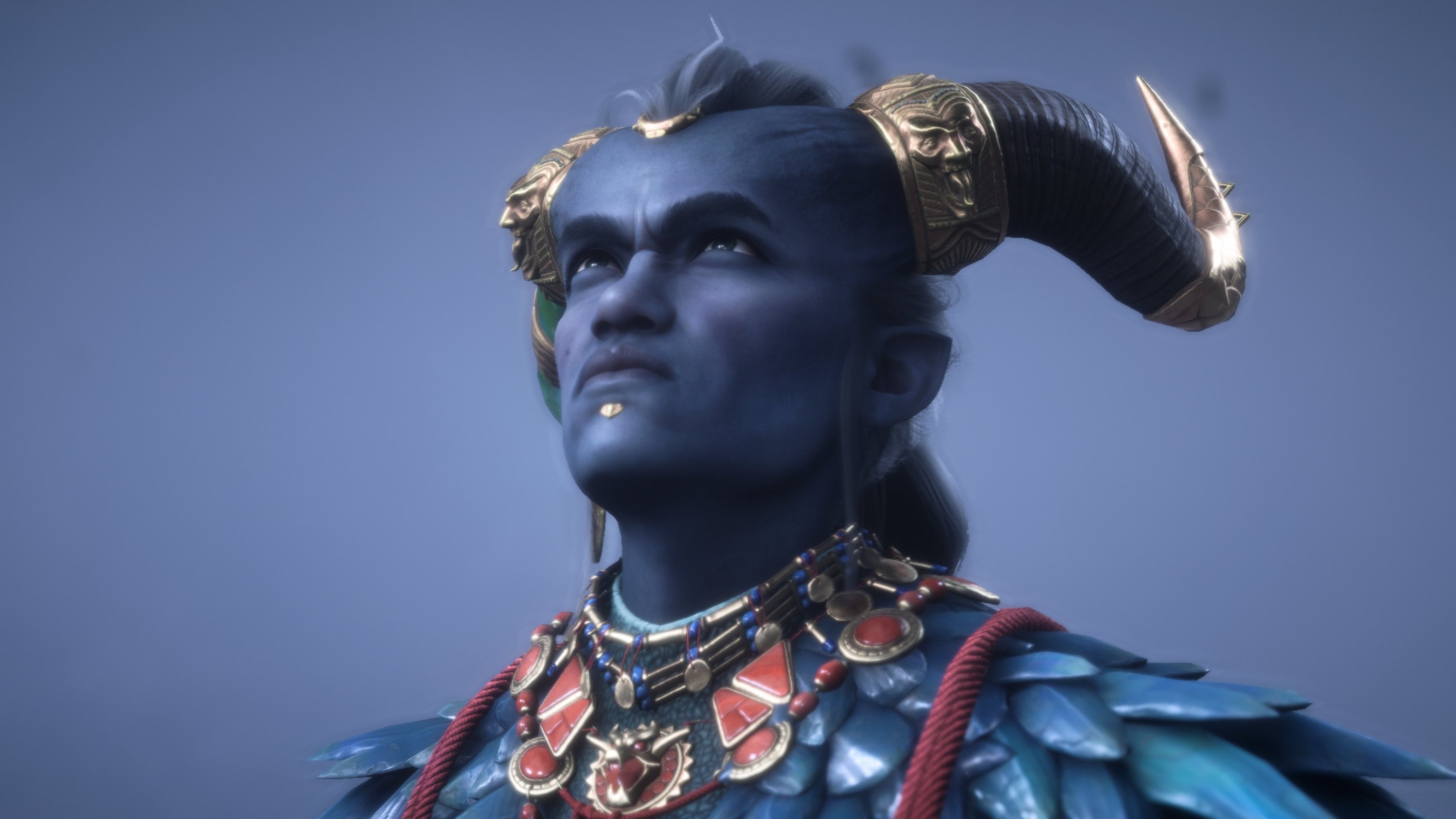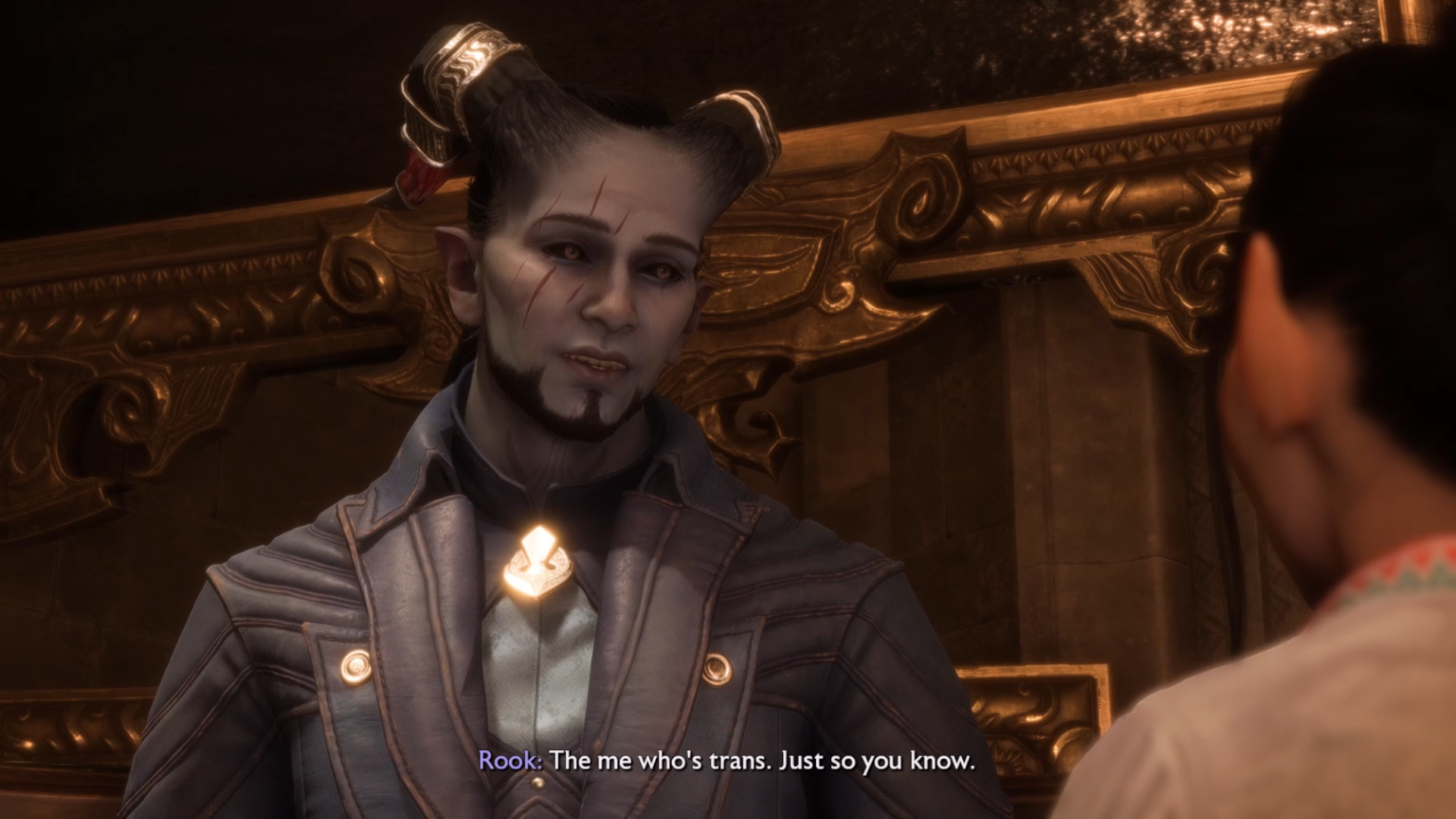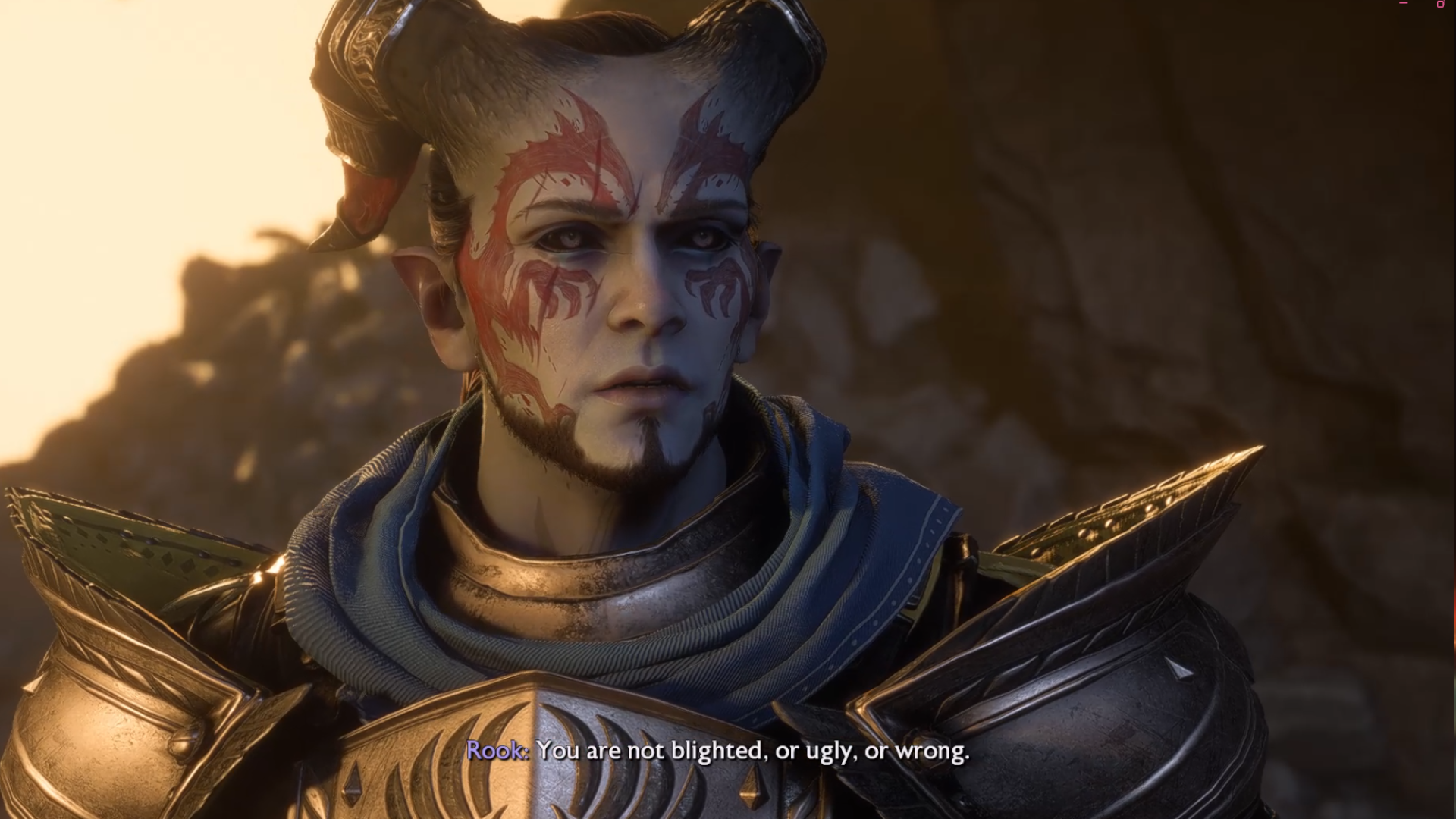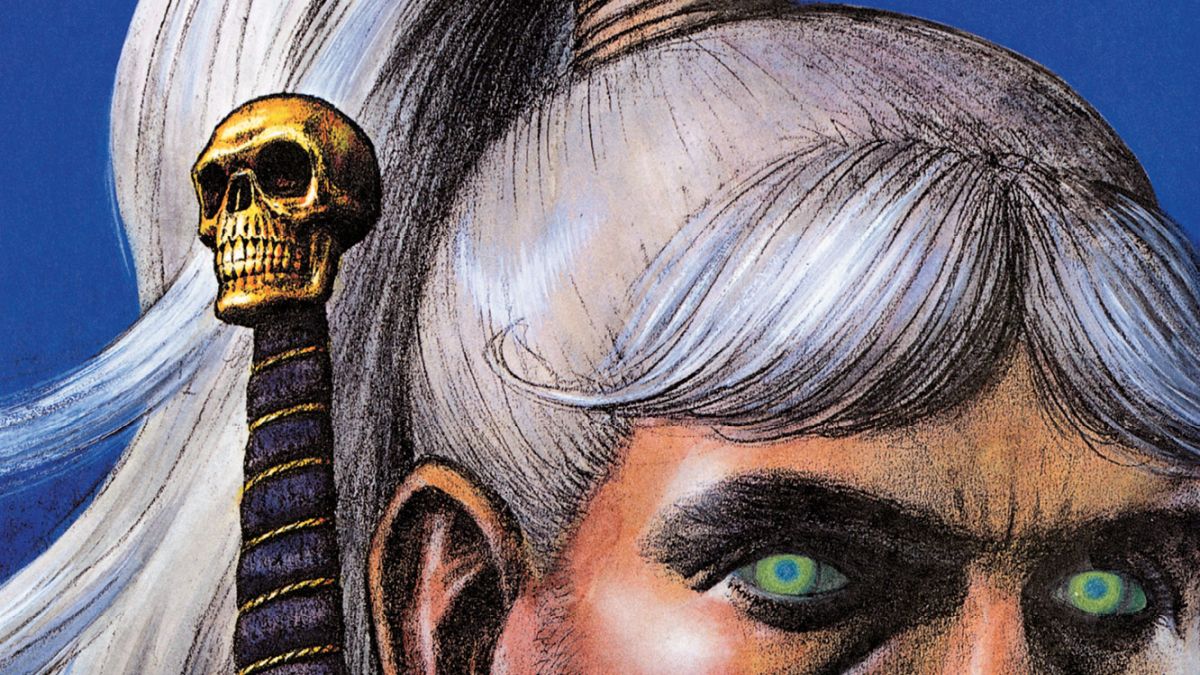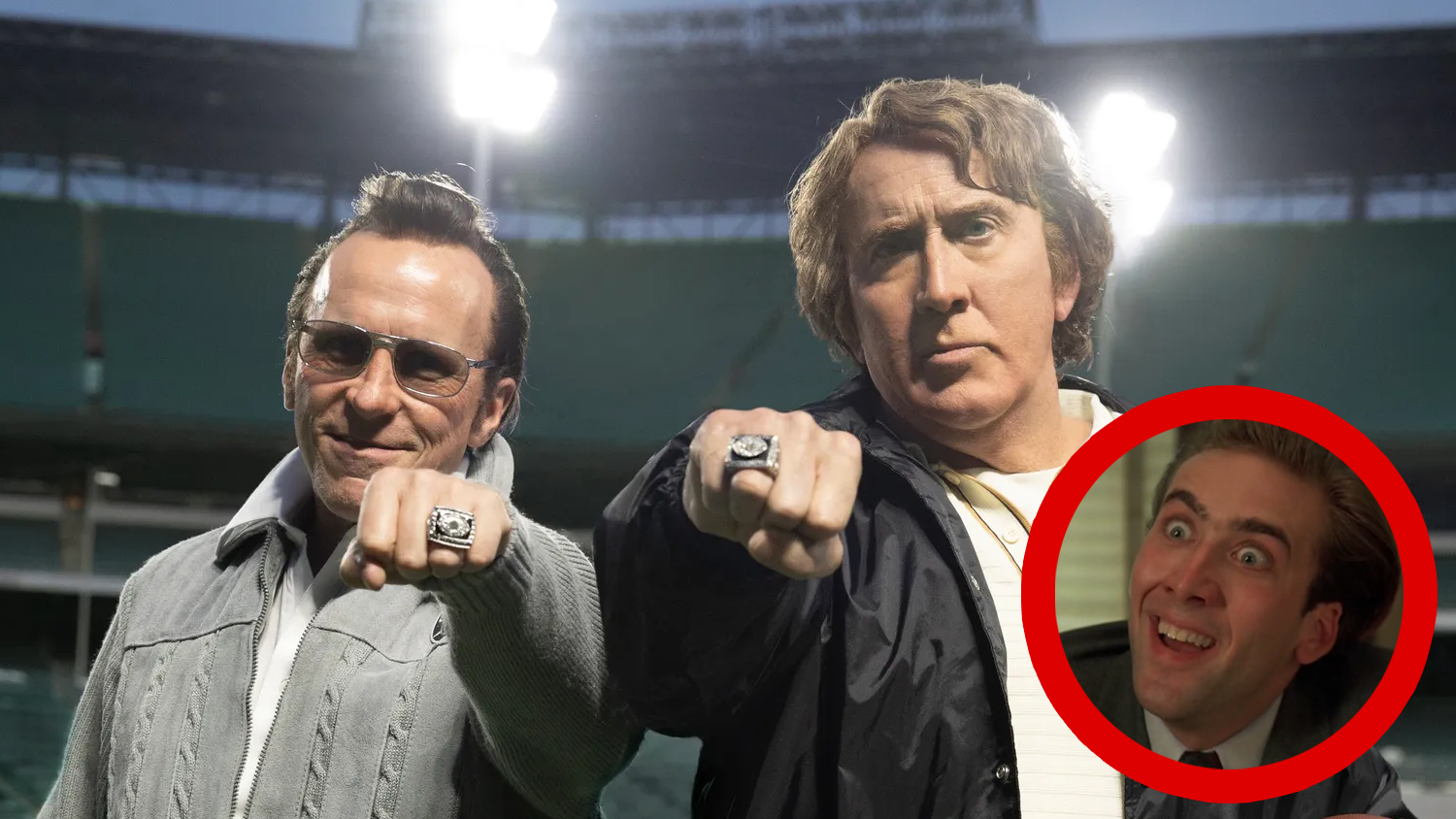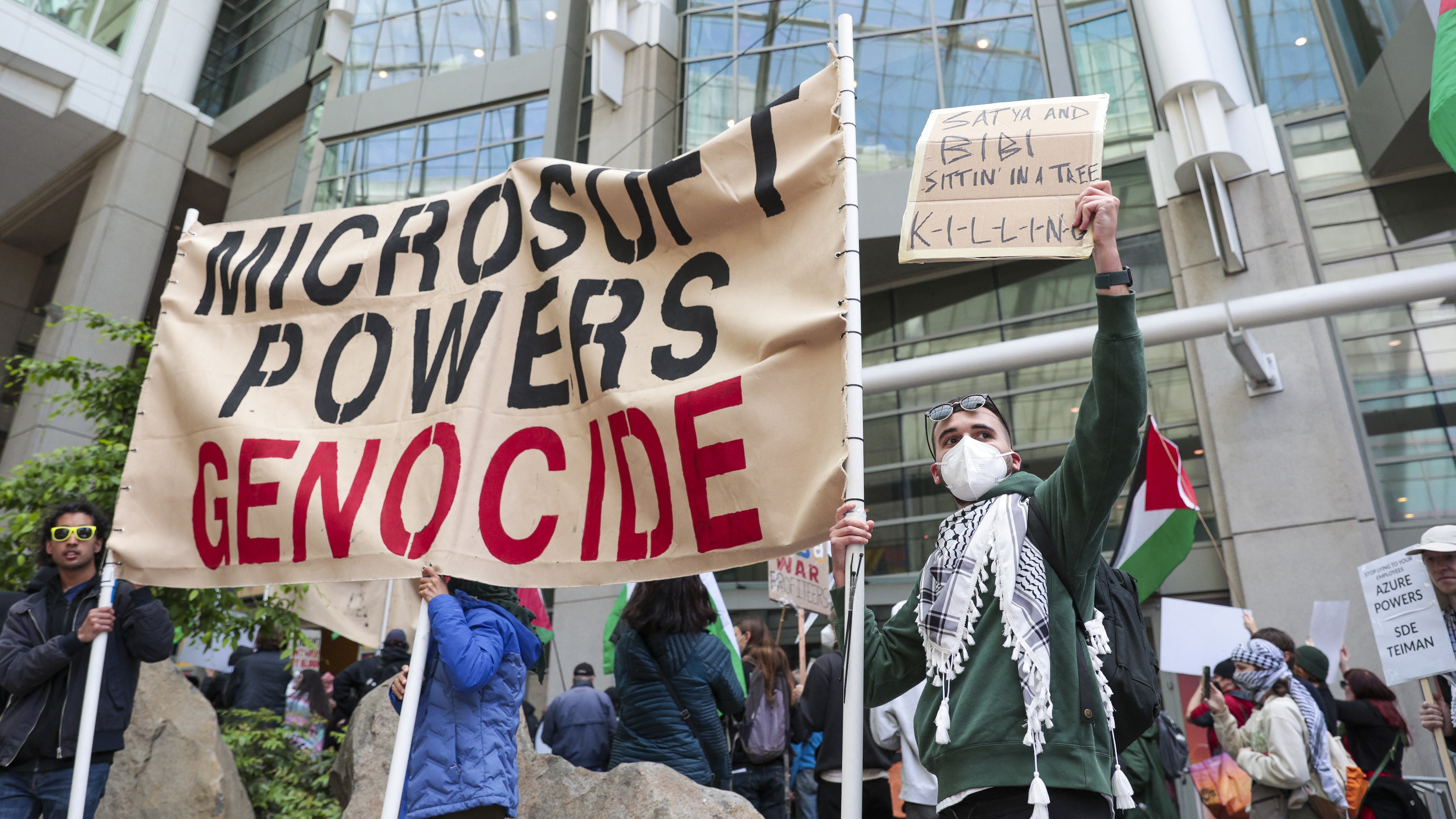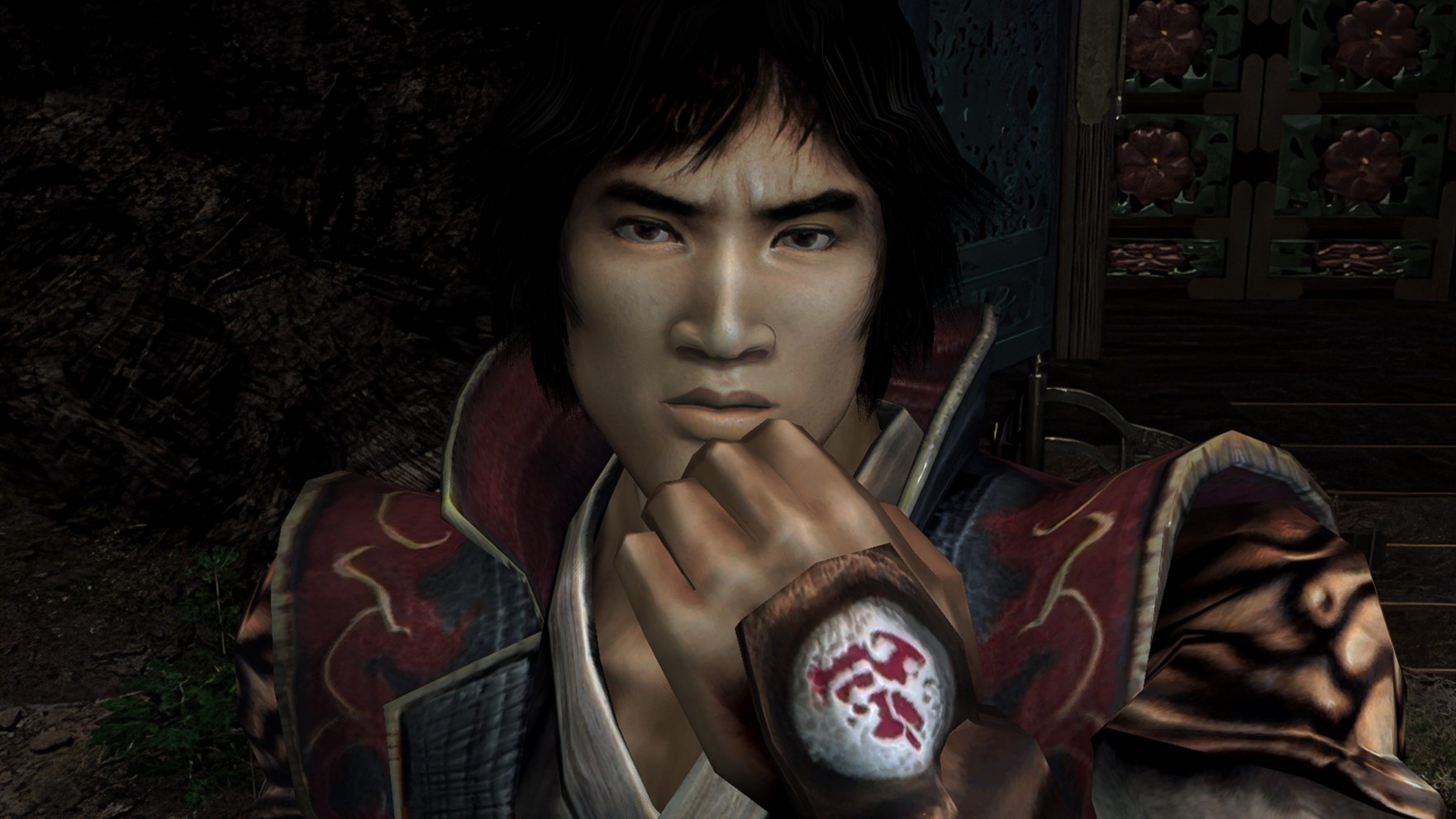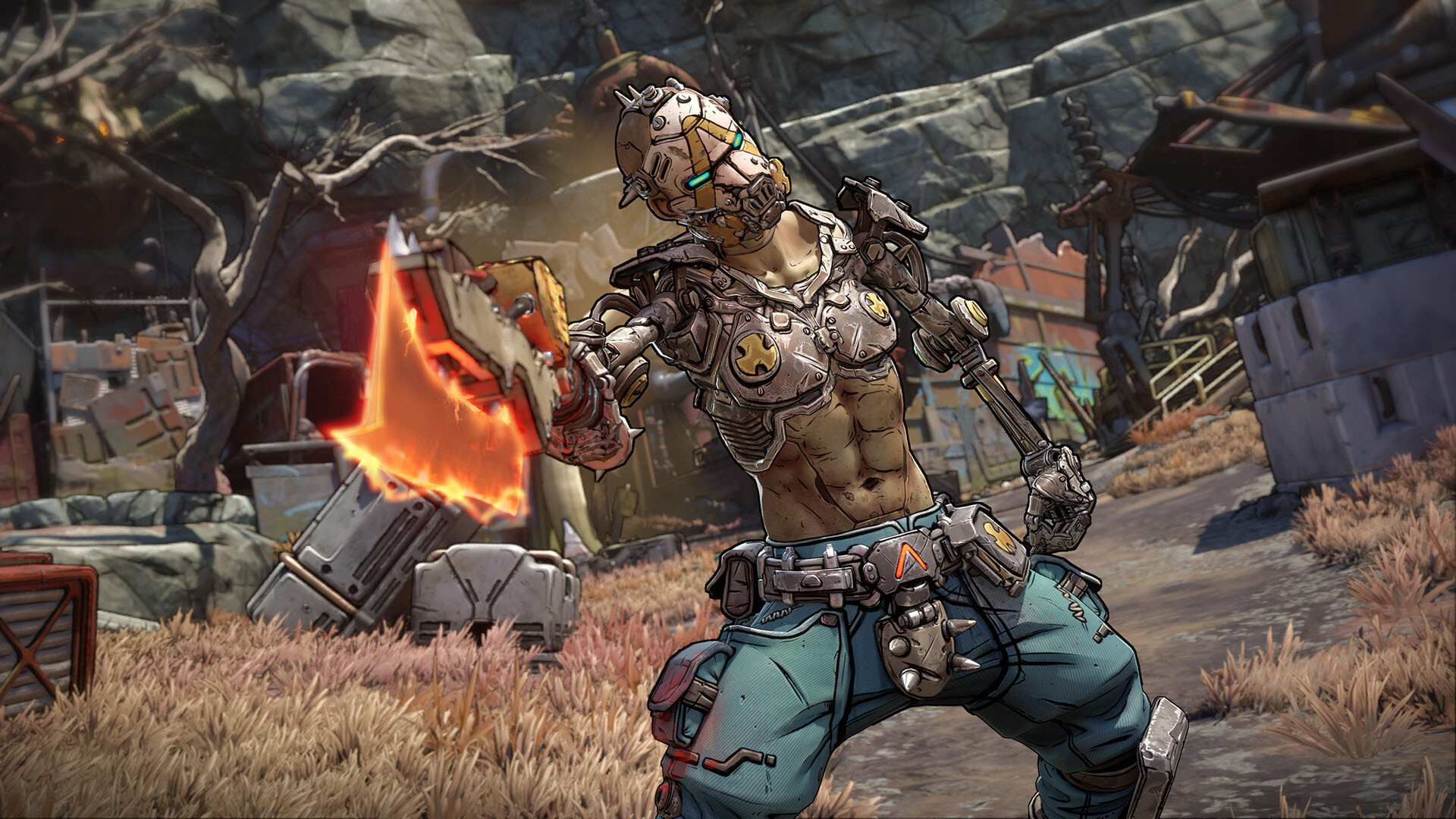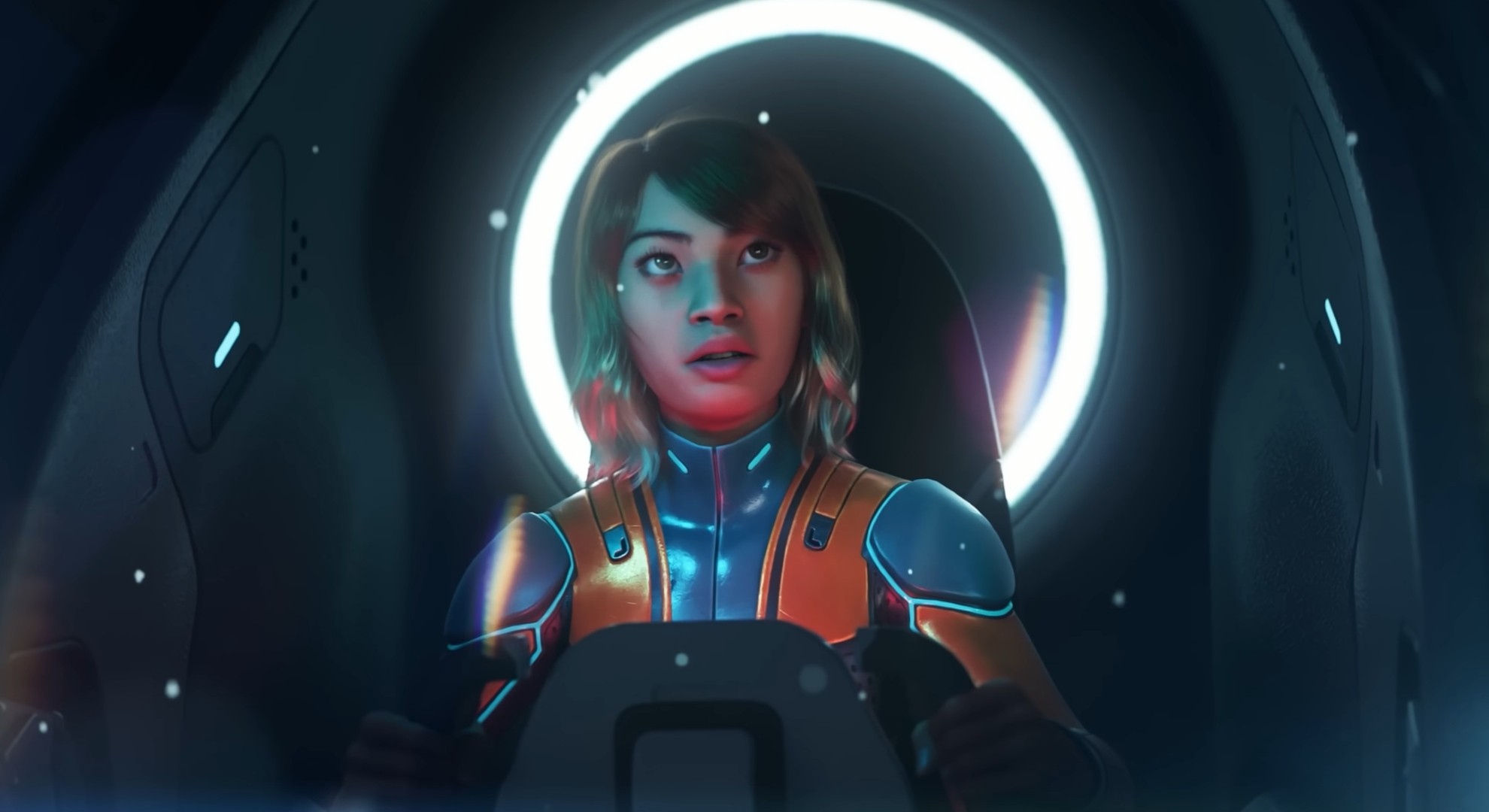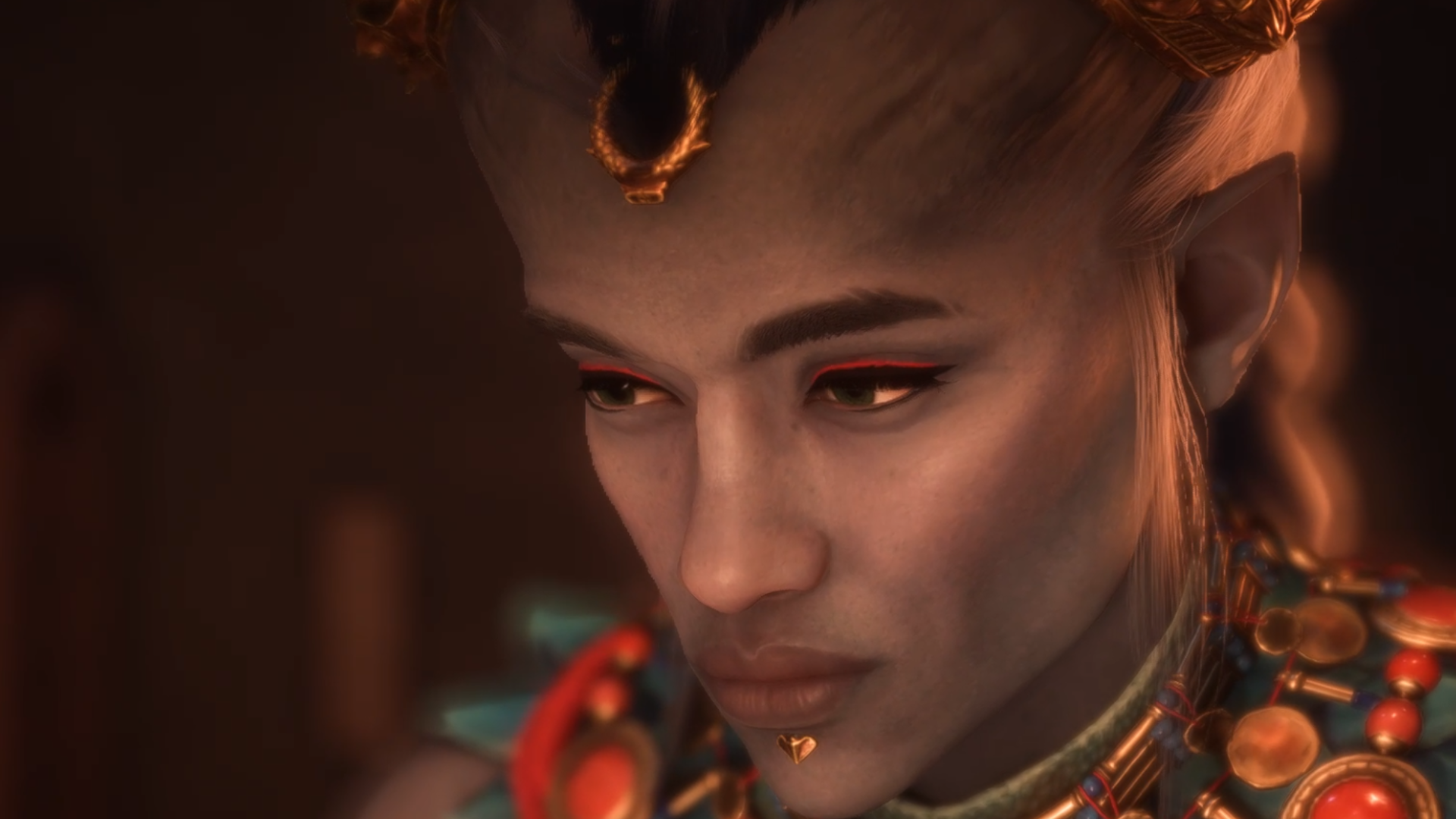
"Don't tell me who I am."
Having played about 50 hours of Dragon Age: The Veilguard over the course of the past month, I’ve felt a lingering dread as a queer person, one that’s manifested as a familiar thought: Ah, god damnit, this is going to be talked about forever. I will be unable to escape the hot takes, the tweets, the Reddit threads, the discourse about this thing for years.
In case you’re unfamiliar, Dragon Age: The Veilguard has options for trans and non-binary Rooks—moreover, one companion, Taash, has an entire storyline dedicated to realising some big revelations about their gender. Spoilers for that to follow.
I want to make this clear at the outset: I do not think these inclusive elements should be a big deal in an ideal world. In fact, the reason I’m writing this is because I want to take a story with these elements in it seriously, as if there wasn’t a big culture war brimming overhead, including a certain election result that’ll likely result in harm to my friends across the pond.
We don’t just deserve representation, we deserve representation in stories that are also broadly good. We ought to be able to engage with these stories in the same way we engage with any piece of art: With deep investment and a thoughtful idea to identify what works and what doesn’t. I want to talk as if the storm clouds were not looming.
In the spirit of that, I’d like to tell you something I find a little nerve-wracking and funny. I feel strongly enough about a videogame that I’m about to come out to try and prove a point. I’m revealing something about my private life so I can do a take on the internet. Honestly, it feels about right.
I’ve been going by all/any pronouns (that’s he, she, and they) for a while now, and feeling weird about my gender long since before that. I chose the non-binary option for Rook partially because I thought it’d be fun to play a non-binary qunari, given the lore implications, but also because I was curious whether or not the game would actually make me feel seen, especially in the way I think it’s trying to.
It has both failed and succeeded, and if I don’t talk about why, my head is going to explode. In the interest of an intact cranium, I’ll now embark on the unenviable task of skirting around sounding like the people who’d rather not see people like me in videogames at all, while also talking about how Dragon Age: The Veilguard falls short for me personally.
I invite you to hear me out—because the truth is way, way more complicated than “inclusion bad” or “inclusion good”. And no-one exemplifies this more than Taash.
In defence of Taash
One criticism I’ve seen making the rounds is about the in-world use of the words “non-binary” in a Dragon Age game, as well as “trans” and various other gendered terms. Those with their knees pre-jerked might tell you that these words aren’t “appropriate” for a fantasy setting under any circumstances, but I don’t think it’s useful to view it through those lenses. However, while I think it could work—I don’t think it does, here.
But first, I want to tell you where I think the game succeeded. I don’t want to slight the efforts of Taash by writer Trick Weekes, who is non-binary themselves. They’ve been writing at Bioware for over a decade and a half, and are responsible for some of Bioware’s best darlings—Solas, Mordin Solus, Tali—and Taash’s story clearly scans as a tale of personal importance to them.
There’s a chance Weekes wanted to do everything I lay out in the following critique, and simply couldn’t.
I also want to reiterate that writers also rarely get exactly what they want when working at a studio. There’s a chance Weekes wanted to do everything I lay out in the following critique, and simply couldn’t. I won’t link to the posts on social media that’ve given me this feeling, out of respect for their privacy, but David Gaider felt a “resentment” in 2016 towards the writing staff when he left, stating last year that the company felt “a good story would simply happen, via magic wand, rather than be something that needed support and priority.”
Maybe that problem’s gone away in the near-decade since, maybe it hasn’t, but it’s worth considering that the product we got was a half-measure, and that a more nuanced presentation was cut for time.
Lastly, I want to point out that Bioware’s come a long way. Dragon Age: Origins and Dragon Age 2 both have some super crummy, low-hanging fruit trans jokes in them. For all its faults, this is way better. Anyway, onto Taash:
Plucked out of the river in which it lies, the use of “non-binary” in Taash’s plotline is actually a clever bit of metatextual discussion over how we use these terms in fantasy stories. When you’re having dinner with Taash’s mum, Shathaan, she actually brings up “aqun-athlok”, a term used in Dragon Age: Inquisition by Iron Bull to describe transgender individuals who live under the Qun, the qunari’s cultural code, which has an otherwise rigid and binary view on gender.
“Why do you keep having to pick at it, why can’t you just be happy for me?” Taash snaps. In a way, it feels like Taash is speaking to those who’d take issue with this scene, who will uncritically divebomb the term Taash finds comfortable, and say that it doesn’t have a place in Thedas. And there’s something really clever being attempted here, I think.
Taash, or rather, their writer, is deliberately using the modern-sounding term of “non-binary” to crack open a dialogue about how we represent these gender identities in fiction. Shathaan is trying to use older, antiquated, more fantastical-sounding words to put Taash into a defined box under the Qun, but that doesn’t work for Taash. Taash needs to do what feels right, and they’ve found that. The fact they also come from a culture with not just a binary view on gender, but a prescriptive role for every one of its subjects, is no coincidence either.
Yet here I sit, sorrowfully picking at it. Because this scene, which is great in isolation, crumples under the weight of the rest of the game. Taash doubtless resonated hard with a lot of non-binary people. And while some moments were genuinely touching and moving, I am, overall, not one of them—because I felt like the rest of the game kept me at arm’s length.
In part, that’s because the issues I have also apply to the rest of the game’s script. Dragon Age: The Veilguard has charming moments and some really affecting scenes, but it also suffers from writing that is scattershot, clumsy, and unpolished in too many areas to count. This, inevitably, applies to its use of queer language in a fantasy context, too.
Permitted, not included
While the word “binary” existed before computers—it has its roots in the latin word “binarius”—the term “non-binary”, referring specifically to gender (it was used in science and philosophy before that, from the 1940s onwards) is modern. Which is a bugger when it comes to representation, because those terms are always going to sound anachronistic, even if the people they refer to should absolutely exist in the setting.
To put it simply, Morrigan says “tis passing strange” and not “that’s pretty sus” despite them meaning the same thing, because one cuts with the linguistic grain, and the other doesn’t.
It’s not an insurmountable writing challenge to include them, though, to justify them in the world—my issue is that Dragon Age: The Veilguard doesn’t consider it a challenge worth tackling. As a game, it’s not really interested in exploring how language is used and why, especially when it comes to gender. Which is a problem, because language and identity walk hand-in-hand.
In my playthrough, Taash briefly mentioned to Neve that they’d spoken to her Shadow Dragon friends about their gender identity. At the time, it made a certain kind of sense—it’s a big empire, with folks pushed to the fingers by systems of imperial blood and magic fascism. It tracks that you’d see us there, rebelling with words as well as action, especially considering Dorian’s history with actual magical conversion therapy in Inquisition.
Gender identity is such a fascinating topic, it deserves to be woven into the fabric of a fantasy setting.
I waited for it to come up again. It didn’t. These important words, used to describe myself and others, got the “Poochie died on the way to his home planet” treatment. In fairness, there’s a codex entry where Taash goes into their conversation with the Shadows, but it adds to this problem rather than subtracts from it.
The words trans, agender, bigender, and demigender make an appearance here, leaving more holes in the narrative that the story itself is too timid to fill. And look—I do get the idea, here. One shouldn’t have to justify every single little bit of inclusion in a story to appease the sceptical masses, sometimes the curtains are just they/them. But I think in this case, it actively works to the detriment of the story and the attempt at inclusion.
When you’re giving birth to imaginary cultures wholesale, and deciding what is and isn’t important to them? Well, historically, gender’s been really really goddamn important. Gender identity is such a fascinating topic, it deserves to be woven into the fabric of a fantasy setting. I want to learn how an imaginary culture handles it, because it’s exciting and fun to do that!
It feels like a waste to handwave any of this. Thedas could do both if it wanted to, it could include us, but also show us our identities in interesting and complex ways. You might say, ‘hey, isn’t that what you just said Taash’s storyline was doing with the aqun-athlok stuff?’ To which I’ll say yes, exactly, but the other half of the whole is missing. We get to know that Taash has found this word, and that it matters to them, but the history of the word itself is deemed irrelevant, or unworthy of discussion.
Just imagine if the word “binary” came from a Rivaini word from North and South. Or maybe it could have spawned from a Rivaini term that means “fit to rule”, since Rivaini is a matriarchal society and, in a way, has a two-tiered caste system of gender similar to the qunari. Taash drawing the word non-binary from Rivaini culture could’ve helped play further into how Taash feels torn between the two societies (an inner conflict that, unsettlingly, has a pretty binary solution where you make them lean towards one or the other). It would’ve been a great way to tie their internal journey with the external forces tugging on them.
Honestly, I take issue with the idea that going into these words’ fictional etymology would be non-inclusive, or questioning, or “picking at” them. Quite the opposite—I want to feel like a writer has sat down and genuinely thought about where I might fit (or not) in the cultures of their world. The idea that we might find an interrogation of gender repulsive feels infantilising, and not really accurate to my experience. Like, I did a lot of self-interrogation to get here!
I want to feel like a writer has sat down and genuinely thought about where I might fit (or not) in the cultures of their world.
This is a problem the wider story has with other topics, too. It’s barely interested in the politics of its own setting. It boils its potential in-universe conflicts into perfunctory, easily-digestible “good guys” versus “guys that suck” battles. Most of its moral conflicts barely have time to touch the sides before they’re dealt with. Friction is the enemy of setpieces.
The history of Taash’s new language, language that means the world to them, gets relegated to a codex entry that, let’s be honest, a lot of people won’t read—and it’s a muted footnote even when you do find it. This superficial and shy worldbuilding, unfortunately, also led to a scene that made my blood run genuinely cold, in complete opposition to the earnest intent behind it.
I’m trans, just so you know
So—I’m romancing Bellara, and there’s an option you get when you’re schmoozing with her to (if you picked that aforementioned non-binary option) let her in on your whole gender situation. Oh, interesting, I thought, I wonder how a game’ll handle this kind of “disclosure”. It’s a nuanced topic, and my character is a qunari. I wonder if he’ll talk about aqun-athlok, and how he doesn’t quite fit into it, or something.
Then my Rook says: “Never a bad thing to hear that someone likes me. The me that’s trans, just so you know.”
Maybe it’s some internalised something-or-other. Maybe I’ve not just wrestled with some darkness in my heart. Maybe I’m overly fretting that some clunky writing could scupper a rare, genuine effort at representing people like me—but this line made my heart turn to ice. It had the exact opposite of its intended effect. It made me feel condescended to, alienated, and genuinely dazed. I don’t doubt that there are trans or non-binary players who would’ve felt really seen by that dialogue response—but I wasn’t.
Choosing this option felt like me reaching out, in good faith, to the game. I wanted to see what I might look like in its world—how I might exist there, how someone like me might explain themselves in Thedas. The response felt like getting brushed off or snubbed. I was given a seat at the venue, but it was at the kiddie table at a wedding while the adults got to talk about taxes. That’s when I went searching for that aforementioned codex entry, and it didn’t make me feel better.
To be fair, part of this is the classic Mass Effect dialogue wheel conundrum crashing into a sensitive topic in an ugly way. Everyone knows the joke that’s been retold since Mass Effect: You pick one thing, but the player interpretation doesn’t match between the prompt and what’s actually said.
What’s messed up, here, is that this same problem that’s been plaguing the wheel since its invention clearly has a chance of backfiring tremendously when it comes to sensitive topics. Maybe if I’d been given four or five options, it wouldn’t have bothered me so much. But if your character’s trans, you get the one response, and if it doesn’t match how you feel, or how your character feels? Tough luck. The dialogue wheel’s only got space for one gender. The rest are backed up in gender storage.
It’s not all bad, but we can do better
Messy writing—whether that be the fault of the author or the publisher they’re writing to deadline under—can turn good-faith attempts at inclusion into things that feel genuinely hurtful. Which is wild to me, because Bioware’s writers clearly give a damn, and there are other moments where that shows.
I liked, for example, how my character was able to elegantly break down the concept when Taash was first questioning it. When Taash also has their first real crisis about their gender, too, being able to connect to them and tell them that they aren’t “blighted, or ugly, or wrong” was genuinely emotionally affecting. Yet considering the whole, I’m just left frustrated, angry, and tired.
Dragon Age: The Veilguard is so afraid to tell me who I am in its setting, it horseshoes back around to doing just that.
I’m frustrated because I can see the vision, but because videogames are such big, complicated engines—and because Veilguard so obviously suffered from that—a script that takes big swings at handling something so deeply personal clips some of the very same people it’s trying to represent.
I’m angry because I feel like I don’t get to discuss this without somehow caping for the very people who want to legislate me, and people I care about, out of existence. I’m tired because I think that this conversation will either end up spawning hate campaigns—or, worse, causing companies to clam up entirely, and I don’t want either of those things to happen.
But I’ve gotta be honest about how I feel, nothing more, nothing less. It’s the message that Taash tries to put forward, after all: “Don’t tell me who I am!”—and yet, Dragon Age: The Veilguard is so afraid to tell me who I am in its setting, it horseshoes back around to doing just that.
I’ve already seen some of my friends get a lot out of how The Veilguard handles its trans rep—it’s not all bad, not by a long shot. As for me, I’ve been given a sanitised and uncomplicated version of myself to look at in the mirror. At times, it’s detailed enough that I’m happy anyone tried at all—at other times, it’s so blocky and nervously shaped that it scans like a caricature.
Whatever the intention behind it, it remains that the series’ nuanced and complicated and thorny discussions of my sexuality from past games, like Zevran’s allegories to the CIA, or Leliana’s faith under an oppressive church being super interesting, have been deemed too upsetting for consumption when it comes to my gender identity. I feel like I’ve been handled with care, rather than written about. The game’s representation is a brave step forward—but it’s only a step, and I hope that (politics have mercy, it’s scary out there) we have an opportunity to do better in the future.

